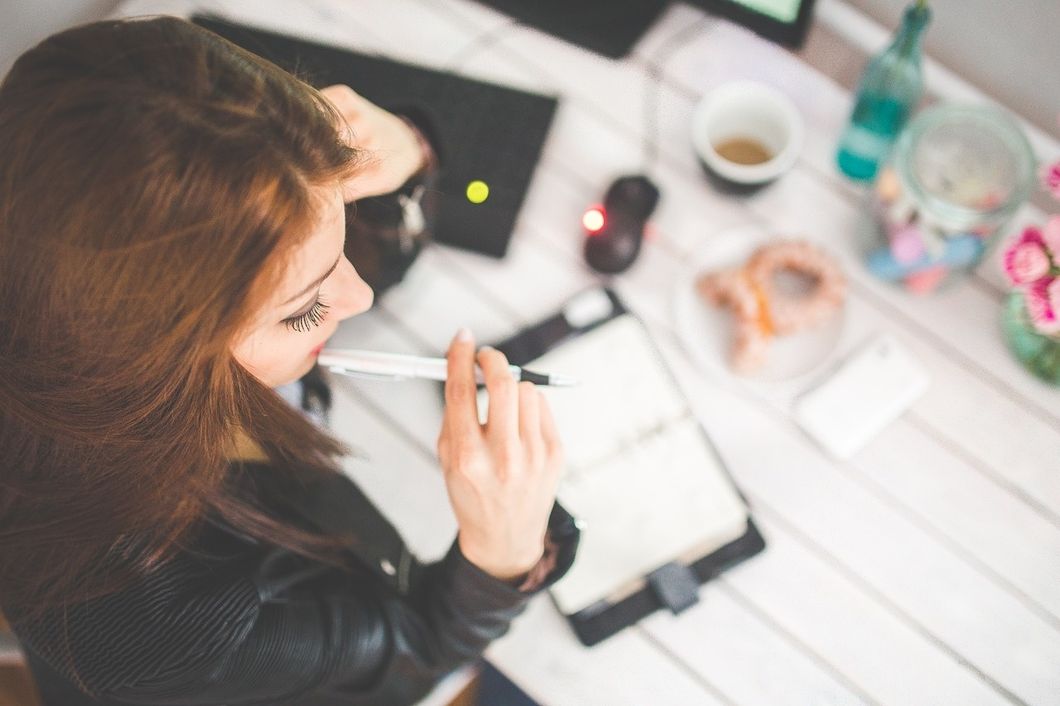Nobody likes to be wrong. It's in our human nature. We all strive to be the best and most accurate we can, whether it be in classwork or when we're writing a post on Twitter.
But sometimes, no matter how confident or well-read we are, we get things wrong. Maybe it's the name of some famous athlete or the date of a specific event. Maybe you swore up and down that something was true, only to find out later that you couldn't have been more off-base.
It's not a good feeling, obviously – I would know. Throughout my life, especially in college, I've been wrong plenty of times. I've been wrong answering questions in class, on exams, and even on Facebook. There have been more times than I can count where I thought I knew something, only to come across more information or someone who made me realize my previous understanding wasn't entirely accurate.
I've encountered this dilemma most often on social media, surprisingly. When I was younger, I was quick to fire off tweets and comments and assert my opinion on anything under the sun, whether it be politics, social justice, music, or a television show. Now, however, with a greatly improved knowledge and skill set (thanks, college!), I look back on many of these posts and cringe, wondering how younger me could've been so ignorant.
One of the most recent (and embarrassing) instances of this is a tweet I made a few years ago, a few short months after Charlottesville's "Unite the Right" rally. There was still a hot debate surrounding hate speech, hate crimes, and other forms of discrimination. I remember reading a funny quote on social media, that read something like, "The people who think hate speech is protected by the First Amendment are the same people who failed Civics in 8th grade." I thought it was hilarious – the perfect amount of political and snarky. So, I copied and pasted the quote into my own tweet. After sending it, I (rightfully) got a few replies, all rejecting the sentiment. At the time, I just brushed off those replies, assuming the accounts were all just members of the alt-right wanting to spew hatred everywhere.
I promptly forgot about the tweet until the first semester of my sophomore year of college, in my Constitutional Law class, which focused on civil rights and civil liberties. I distinctly remember how aptly my professor explained to the class, using various Supreme Court decisions as references, that hate speech actually is protected by the First Amendment – the Supreme Court has protected it time and time again.
I was shocked, and my mind immediately went back to crafting that tweet with a grin on my face, thinking it was so clever. I was mostly embarrassed and angry at first. I thought about how stupid I looked to everyone else on Twitter who knew I was wrong. I was even angry at the source I got the quote from before I realized it was my own fault for not fact-checking. To this day, I never even told anyone what I found out, even my friends who had been defending me online. I just hoped it was so far back in my profile that no one would ever see it again.
At first, I felt deeply embarrassed and even a little ashamed for what I said. I should know better, right? Well, yes and no. We, as humans, have this unfortunate tendency to strive for absolute perfection in our jobs, academic careers, and even our social lives. And when you misstep and get something wrong, it's catastrophic. Why do we beat ourselves up so badly? As the quote goes, "We're only human." No one is perfect, or all-knowing, or always right. That in itself is what makes us human.
In my journalism classes, they teach you that if you get something wrong in a story, whether it be a name, address, fact, or any other detail within the story, you simply apologize and issue a retraction, identifying the error and the correction. Then you go on.
That lesson, in particular, is what has taught me to be okay with getting things wrong. Now, when I look back on my false tweet that I initially believed, I'm not so embarrassed or angry (well, I'm still a little embarrassed, but still). Instead, I remind myself that I didn't know what I do now and that the fact that I realized I was wrong is just a testament to how much I've learned. Then I try my best to move on (and maybe fact-check a little more).
So, next time you get a detail or idea wrong, try the journalism method: if necessary, apologize, then correct yourself and move on. Don't beat yourself up for not knowing everything – that's humanly impossible, anyway. Instead, celebrate the fact that you have a mind open enough to accept fault and learn something new.

















